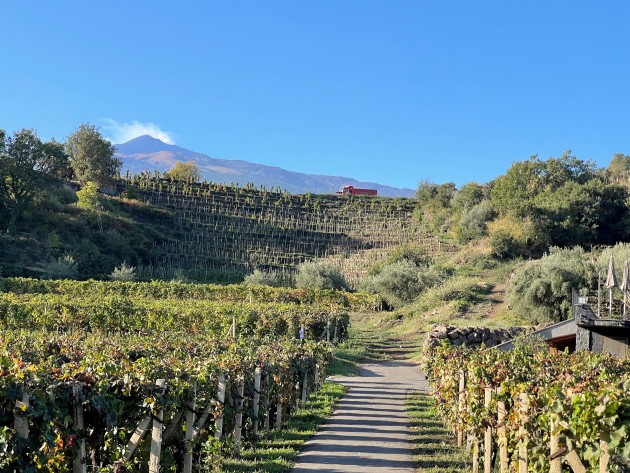
New limits on Etna to control invasive investment
New moves to limit Etna DOC (PDO) wine production volumes have been designed to maintain and control average grape prices, as a way of preserving the Sicilian mountain’s wine economy, its environment and viticultural heritage, the Etna DOC wine board has said.
New vineyard planted between 1 August 2021 and 31 July 2024 cannot be registered under the DOC Etna appellation, the Etna wine board said.
“The Consorzio cannot prevent entrepreneurs from planting new vineyards, obviously, but they can suspend the registration [of new plantings],” a spokesperson at the wine board said.
It is understood that there no exemptions or exceptions to the new measure, which affects all plantings of new vines.
The spokesperson denied a claim made earlier by an Etna wine board member who had said 30% of grapes picked from new vineyards planted after August 2021 could be registered to make Etna DOC (PDO) wines.
The protective measure comes amidst wine producer concerns at the continued influx of new vineyard investors in Etna, where bottling has grown by 30% so far this year, and by the same percentage since 2019, to around 4.8 million bottles, according to the Etna DOC wine board. Etna wine producers want to ensure that wine production expansion, as a result of soaring demand, does not destabilise their economy and result in the loss of biodiversity, trees and an increase in pollution.
“The Etna wine board wants to control who investors are. If the investor wants to come to Etna, they are welcome, but this measure is an incentive for them to have a serious project,” said Federico Lombardo di Monte Iato, chief operating officer of producer Firriato, and member of the Etna PDO wine board.
“Investors are coming and destroying the terraces to make big vineyards, with mechanical harvesting. We want to preserve the biodiversity, trees, and the mountain’s panorama,” he said.
The current average prices for Etna’s dominant native grapes, Carricante and Nerello Mascalese, stand at €2 and €1.5 a kilo respectively, but a fall in prices could transform Etna’s fragmented wine sector, its environment and wine heritage, Lombardo di Monte Lato warned.
“80% of Etna’s more than 200 growers own less than 2ha. If grape prices plunge, small growers will abandon viticulture,” said Lombardo di Monte Iato.
“This means small farmers will sell vineyards to huge companies who will want to develop efficient vineyards and who will destroy vineyards and replant them, leading to a loss in traditional viticulture and biodiversity,” he explained.
“We are trying to find a system, the best way to control high average grape prices,” he added.
Faced with growing demand, Firriato – a certified organic producer – is gradually increasing planting on the northern slopes of Etna, in a measured way, by 8ha annually over the next three years, without ‘changing the shape of the stone walled terraces’ and by preserving biodiversity.
The company, which is one of Sicily’s five top brands, has since the turn of the century been a pioneer in the revival of quality traditional method Etna Spumante sparkling wine, which now accounts for 25% of its annual Etna wine production of around 800,000 bottles.
Firriato, which predominantly makes Etna reds and whites, has extended its range of quality Etna Spumante to five wines. Meanwhile, it is conducting research into eight unknown grape varieties belonging to pre-phylloxera vines.
Keywords:
- wine
- new
- production
- PDO
- Vineyards
- Grape
- prices
- wine production
- DOC
- Etna
- COO
- biodiversity
- wine board
- Etna DOC
- control
- di monte
- lombardo di
- average grape prices
- etna doc wine
- di monte iato
- doc wine board
- etna doc pdo




